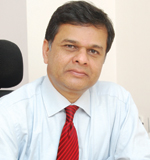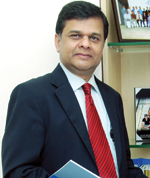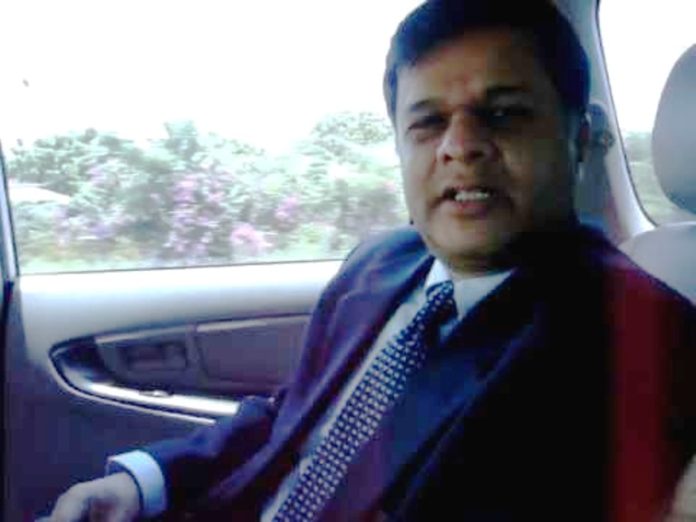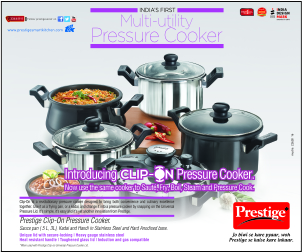 Q.Tata Power is committed to ‘lighting up lives’. How do you light up the lives of your people?
Q.Tata Power is committed to ‘lighting up lives’. How do you light up the lives of your people?
A. The complete development of an individual to realise inherent potential requires attention to many facets. A meaningful career and an environment that nurtures their well-being are the critical factors to the success of employees and often result in the experience of ‘lighting up lives’.
Tata Power has employees at various stages of growth in their own life-cycles. Our people policies and practices enable them to reach their potential at different career stages. The young and aspiring managers, in the early stages of their careers, often seek opportunities to learn and to acquire experience. This is done through carefully matching job assignments with their interests and qualification. Once they develop a core ground in an area, they are exposed to new opportunities leading to job rotation. As employees progress in their careers, our people processes guide them higher through an exposure to challenging assignments, including international roles, and the opportunity to lead cross-functional teams. Senior leaders coach and guide their younger colleagues, achieving both, a meaning and purpose in their own careers while also reinforcing this process of enabling meaningful careers. At every stage, there is a great emphasis and support on learning and development.
Care is a core value at Tata Power. Our policies are based on care, not only for employees, but also their families. We continuously work towards fostering an environment that nurtures the well-being of employees. This includes attention to even small details like housing and transport facilities.
Tata Power enshrines the paradigm of ‘lighting up lives’ and this is exemplified in the care for employees – creating an environment where each one can rise to their potential and do so in a fulfilling manner.
Q. In your opinion, what personality types can be termed the ‘difficult ones’ in office? How can HR deal with them?
A. Over the past century, the business environment has become progressively more dynamic. While this would further intensify, it is evident that in the current context the new norm is one of volatility and greater uncertainty. In this situation, it is extremely important to be adaptable to change. Being adaptable to the changing environment is imperative for success.
The role of HR becomes even more significant in driving ‘Change Management’ across the organisation. HR actively drives interventions focusing on coping with change and in collaboratively achieving organisational goals. This requires focused leadership capability development. We deploy learning interventions on enhancing managerial and leadership effectiveness. This includes STEP (Strategic Training for Employee Progression), which focuses on inculcating adaptability, and ‘LEHER’ (wave of change) an extensive intervention on organisational transformation where officers are selected as drivers of change. To take this capability building further, we run a learning intervention ‘LASER’ (Learn, Apply, Share, Enjoy, Reflect). This is an initiative aimed at achieving high standards of performance at the shop-floor level, inspiring employees to aim for excellence.
 Q. How can HR deal with temporary mood swings?
Q. How can HR deal with temporary mood swings?
A. Care is one of our core values. Consistent with this, we work towards ensuring the well-being of our employees. We have an engagement platform named ‘Mitra/ We Care’ through which employees can approach experts for guidance and counseling. Some of our employees have approached this forum, which is gradually gaining popularity. Additionally, we have programmes on stress management to help employees manage stress in personal and professional life, which is a root cause of mood swings. To support this further, if need be, we have a comprehensive medical care facility that provides extensive medical examination of employees and their family members.
Q. How do you assess the satisfaction level of your employees?
A. Our constant endeavour is to make Tata Power a better place to work at. We have various channels for employee feedback that help us gain insights into satisfaction levels. This inclusive process improves the engagement and satisfaction levels, and leverages in-house talent for organisational growth. Employee engagement and satisfaction survey is conducted every year, based on which we take up initiatives and improve processes. We also conduct a communication cascade and action planning sessions based on survey feedback. Individual leaders receive an individual scorecard, on the basis of which, they engage with their teams to develop action plans to make improvements in low scoring areas.
The engagement and satisfaction scores is an indicator of the overall psychological well-being of employees. We have engaged a professional counseling firm to help us with this initiative.
Q. Is personality test a foolproof hiring tool?
A. A personality test on its own is not a complete hiring tool. This test helps in suggesting a match between the candidate’s personality and the requirement for a particular job. However, measuring the functional excellence, cultural fit, and leadership qualities of the candidate are important factors.
Q. Do you think HR managers in India are more systems-driven and often fail to focus on the human quotient?
A. While managing HR there is enormous focus on uniformly following key systems and processes, in order to treat all employees equally. Culturally, people from India are relationship focused, and often display a high Emotional Quotient (EQ). It is this sensitivity and empathy that enables a balance between process and emotion.
























